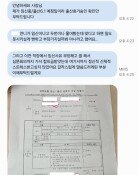Moon’s latest comment for separated families
Moon’s latest comment for separated families
Posted September. 16, 2019 07:32,
Updated September. 16, 2019 07:32
“It is wrong that governments in both South Korea and North Korea have not given (separated families) even a chance to meet with one another,” President Moon Jae-in said that in a TV program, which was aired on Friday to mark the Chuseok holiday. He apparently made the comment to sympathize with members of divided families, but it is in fact an inaccurate assessment to say that both Koreas are responsible for the current hiatus in the family reunions.
We are just three days away from the first anniversary of the Pyongyang Joint Declaration of September 19, 2018, which was signed by both Korean leaders after their third summit. The agreement called for cooperation to resolve the issue of separated families, including the restoration of a permanent meeting place, the exchange of letters between families, and reunion events via video link. No progress has been made, however, due to North Korea’s uncooperative attitude. The reconnection project of railways in the two Koreas has also stalled since the groundbreaking ceremony. The North has been declining to have inter-Korean dialogue, thinking it lost face when the Hanoi summit with the United States collapsed. Yet, Pyongyang’s stance to politicize even the issue of separated families is a breach of promise and a disregard of humanitarianism.
The previous and incumbent South Korean governments, either liberal or conservative, have actively sought to hold reunion events for those who left their loved ones in the North or South. A movement to find separated families by the Korean Red Cross first started in 1971 during the Park Chung-hee administration, and visits to their hometowns as well as art performances were first held in Seoul and Pyongyang in September 1985. More reunions were held during the Kim Dae-jung and Roh Moo-hyun administrations. Still, North Korea has maintained a passive attitude in allowing residents to meet with their families in the South, possibly due to concern that such events would highlight the superiority of South Korea’s system. Now it is refusing to even hold working-level talks. Thus, it is completely the North Korean regime’s fault that little progress has been made on the issue of dispersed families.
As of now, the number of surviving separated families in South Korea is believed to be around 50,000. About 3,000 people among them pass away every year. Therefore, rather than wasting precious time by using inappropriate political rhetoric in the latest comment, the Seoul government should boldly call on North Korea to take the offer to hold talks.
Headline News
- N. Korea launches cyberattacks on S. Korea's defense companies
- Major university hospital professors consider a day off each week
- Italy suffers from fiscal deficits from ‘Super Bonus’ scheme
- Inter Milan secures 20th Serie A title, surpassing AC Milan
- Ruling and opposition prioritize spending amid tax revenue shortfalls







